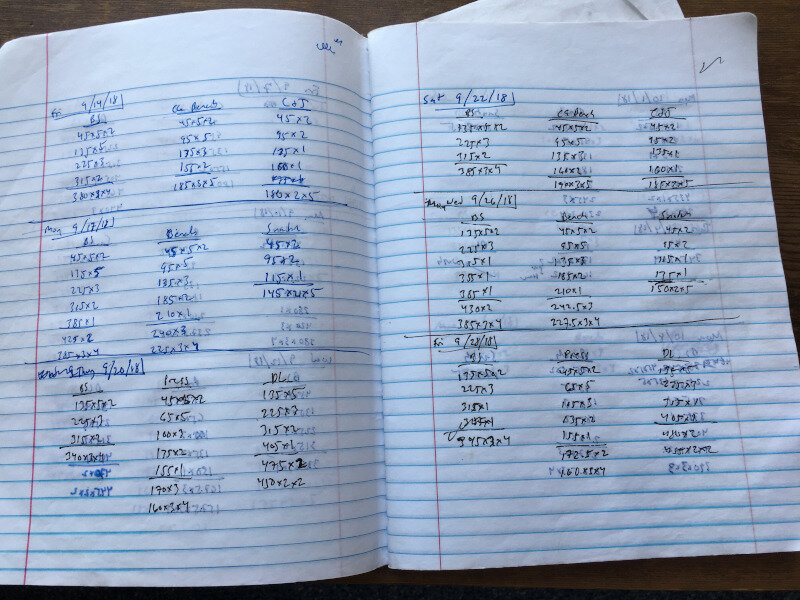When we train with weights, we do exactly that – we train. Training has a purpose - a goal in mind. To achieve these purposes, to work toward these goals, we need data, and this is where the training log comes in. Without the log (or journal, notebook, etc.), we quickly find ourselves adrift in a sea of barbells and weights with no direction whatsoever. We find ourselves lost in the Sea of Exercise . . . and there be monsters.
Mind you, there is nothing wrong with Exercise, and it's certainly better than Doing Nothing, but let us not confuse Exercise with Training. Exercise is what you do when you want to get hot and sweaty and tired and feel like you’ve accomplished something. Training is how you actually accomplish something. The log separates Training from Exercise.
The log is our history - it tells us where we've been, what we've done - our lifts, warm-up sets, work sets. But it is a more complete history than this - it also includes PRs, how we felt on certain days, how proud we were of our accomplishments, how utterly disappointed we were with our failures. If you had a poopy day squatting 185 lbs for your work sets, write it down in your training log (seriously . . . “this was a poopy day”). Success is magnified by knowing how far we’ve come, and on the day when 185 lbs becomes your second-to-last warm-up set (and that day will come), the knowledge that this weight used to be terribly heavy will remind you of the progress you’ve made.


